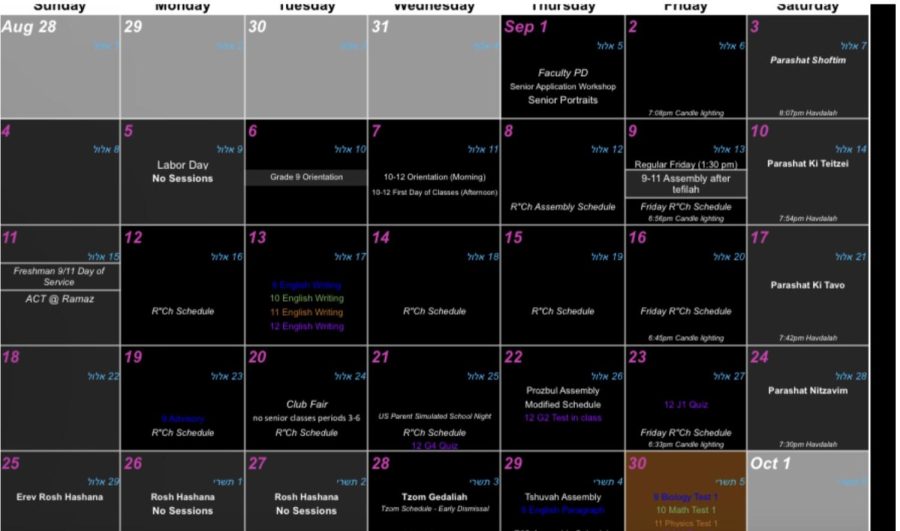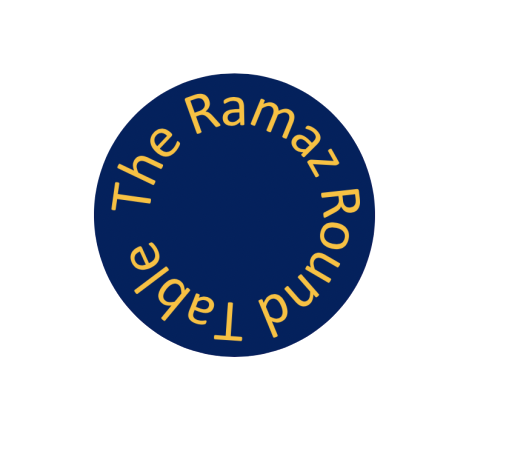Daven or Study?
The chagim started late this school year and with two full weeks of school complete before Rosh Hashanah, Ramaz is in full swing. All classes have started,cademic and athletic teams have been formed — even the most extra of curriculars have gotten underway. One of the side effects of this year’s Jewish calendar is that this is the rare year in which students have covered enough material in some classes to have their first tests by the time chagim arrive. As a result of the timing, many students have tests – often on their most challenging general studies subjects – immediately after Rosh Hashana and Yom Kippur. This leads to a dilemma for students that should not and does not need to exist. Should a student study for tests over the chagim, or focus on celebrating the chagim but risk not having enough time to study? I recognize the importance of fitting tests in the calendar but I would argue that only Jewish Studies tests should be allowed on the days immediately following a Jewish holiday, and doing so would not jeopardize fitting everything in.
Ramaz’s mission statement says that it is “a co-educational modern Orthodox Day School” that, among other things, strives to educate students towards “[a] commitment to Torah, mitzvot, and Ahavat Yisrael…” Being a Modern Orthodox school with a commitment to keeping the mitzvot presumably includes reinforcing the importance of not writing or using electronics on Shabbat or Yom Tov. However, as an eleventh grader with my first physics test just three days after Rosh Hashana, or in the case of sophomores who have a math test scheduled for the same day, I can’t help but feel that Ramaz is testing that mission. It’s extremely difficult to study for a math or physics test without writing. Even putting the writing aspect aside, regardless of someone’s level of observance, students should be incentivized to spend time with their families during the chagim, not to be locked in their rooms studying. Scheduling tests so close after the chagim encourages the opposite.
As I noted, I also understand the need for giving some exams to make the school calendar work. Not giving tests at all for many weeks would compress too much into the rest of the semester. For that reason, I propose that only Jewish Studies tests be given in the days after the chagim. A talmud, bibs, or JLT test shortly after the chagim would encourage Torah study over the break, certainly not inconsistent with Ramaz’s mission or halacha in general. If anything, it would encourage important Modern Orthodox values.
There is a precedent for changing exam schedules for holidays, although I would argue not enough of one. Last year the spring math final was scheduled for right after Shavuot. The administration wisely moved it to three days after Shavuot, which was better but still not optimal. It would have been better to put a Jewish Studies exam in that slot.
The essence of Jewish holidays is spending time davening, learning Torah, and with family. Whenever possible, Ramaz should facilitate students doing these things, or at least not actively disincentivize them. When it comes to scheduling tests, Ramaz has options. The administration can schedule Jewish studies tests at times that reinforce its religious values without sacrificing its overall academic goals. We will all need to take Jewish Studies exams and General Studies exams at some point. It doesn’t matter much which go first. Why not order them so that they do not force students to choose between Ramaz’s religious mission and its academic mission?




